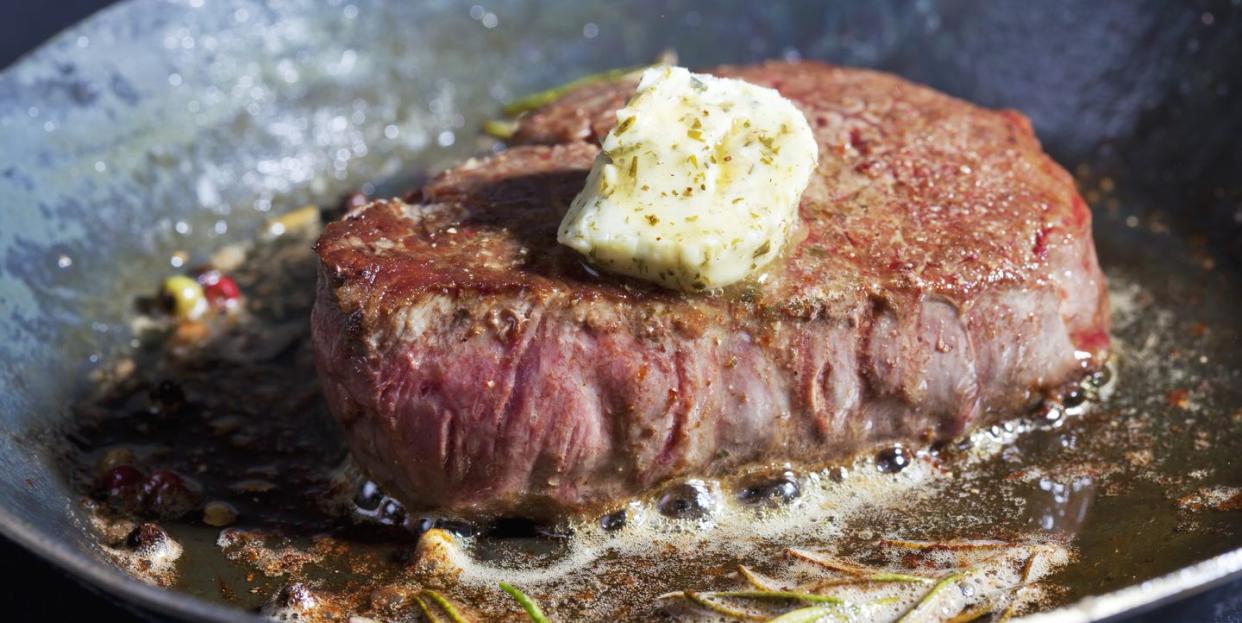Turns Out a Low-Carb Diet Could Slash Up to 4 Years Off Your Life

Bad news for those following the ketogenic diet: Following a super low-carb diet may slash the number of years you live, according to new research published in The Lancet Public Health.
For the study, researchers had more than 15,000 people in the U.S. fill out self-reported questionnaires about their diet, including the foods they consumed and how much of it they ate. From this information, they were able to determine the amount of calories they ate on average, along with how their main macronutrients-carbohydrates, protein, and fat-were broken down.
The researchers did not include people whose calories teetered on extreme ends of the spectrum, or those eating less than 600 calories or more than 4,200 calories.
After following the study participants for roughly 25 years, they concluded that a 50-year-old person who ate a moderate amount of carbs (50 to 55 percent of their calories from carbs) would live an average of 4 years longer than someone who ate a super-low carb diet (less than 30 percent of their calories from carbs) and roughly 2 years longer than a person following a traditional low-carb diet (30 to 40 percent of their calories from carbs). That's why people on the ultra-trendy keto diet might want to pay attention-that eating plan is typically comprised of just 5 percent carbs.
That said, this research indicated high-carb diets were risky, too. People following moderate-carb diets were still estimated to out-live those getting more than 65 percent of their calories from carbs by 1 year.
The silver lining? The type of foods they ate made a difference. For those following a low-carb diet, swapping those carbs for plant proteins rather than animal proteins resulted in a slightly reduced risk of earlier death.
Why can slashing your carb intake be dangerous?
Those extra calories have to come from somewhere, right? The study authors explain that people who cut out carbs tend to replace them with fewer vegetables, fruits, and whole grains-all of which are loaded with disease-fighting phytochemicals, heart-healthy fatty acids, gut-filling fiber, as well as essential vitamins and minerals.
For example, many people following a keto diet tend to strip common fruits and vegetables out completely because they pack more carbs, replacing them with keto-friendly foods higher in calories and fat-like processed meats (hello, bacon) or low-carb packaged snacks. Not all keto-lovers eat the same way, but a similar pattern tends to develop over time.
A 2017 state-by-state report from the Centers of Disease Control and Prevention confirms that we struggle with this as a whole: Only 12 percent of adults eat the recommended amount of fruit, while only 9 percent down enough vegetables.
So even if you see some weight slip off when you dramatically slash your carbs, it could be doing damage to other parts of your body. Time and time again, research finds that eating too much red meat may lead to disease, while filling up on fruits and vegetables lowers that risk, according to an official position paper from the American Academy of Nutrition and Dietetics.
On the other end of the spectrum, high-carb diets tend to lean toward refined, processed carbs (think: white bread, sugary cereals, and sweetened drinks), which are known to trigger serious health conditions like obesity, type 2 diabetes, and heart disease.
The bottom line: Moderation is your friend
The most recent U.S. Dietary Guidelines recommend that the average adult woman get 45 to 65 percent of her calories come from carbs, 10 to 35 percent from protein, and 20 to 35 percent come from fat. Obviously, this ratio will change depending on your age, gender, and activity levels-but striking a balance can help ensure that you eat all of the foods you need to a longer, healthier life.
('You Might Also Like',)